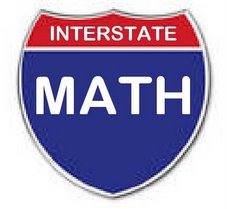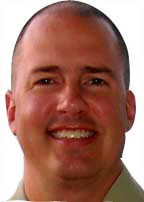Md., Va. Earn High Marks on AP Exams
By Jay Mathews
Washington Post Staff WriterWednesday, February 8, 2006; A08
Last year, a record 23 percent of American seniors graduated from high school having taken at least one Advanced Placement exam, the College Board said yesterday in a report dramatizing the rising influence of AP on teaching, college admission and state education policy.
In its annual AP report released yesterday, the College Board rated each state's success in preparing students for AP exams in 35 subjects, with Maryland and Virginia scoring near the top. The report hailed advances by minorities in taking the three-hour exams and analyzed the strength of the AP science and calculus courses that President Bush said in his State of the Union address should get a new dose of federal teacher training funds.
Nationally, 14.1 percent of all graduating seniors last year scored at least 3 out of 5 points, the level at which most colleges give course credit, on at least one AP exam, compared with 10.2 percent of seniors in 2000, the report said. The top five states in that category in 2005 were New York with 22.8 percent; Maryland, 21 percent; Utah, 20.5 percent; California, 19.7 percent; and Virginia, 19.3 percent.
In addition, the number of minorities taking AP courses has soared, according to the College Board. The number of African Americans taking the courses has gone from 19,797 in 1995 to 62,179 in 2005. For Hispanics, the increase in that period was from 32,195 to 134,811, with great gains in Hispanic AP participation in Florida, Maryland, the District, California and Texas.
Among those taking the 2005 AP tests, whites and Asians each had passing rates of 63.3 percent. The passing rate for Hispanics was 46.5 percent and for African Americans, 27.8 percent.
Bob Schaeffer, director of public education for FairTest, a testing watchdog organization, said his group is not as critical of AP as it is of the SAT, which it says is used too much by colleges to decide which students to admit. The AP "is a gateway test, not a gatekeeping test," Schaeffer said, and it's one that he thought helped both him and his son when they were in high school.
But, he added, there is a danger that the College Board will oversell the AP as a cure for American high schools' ills. "The College Board has really seized the opportunity to promote this," he said.
Unlike the College Board's other major test, the SAT, which has a strong rival in the ACT college entrance exam, the AP is by far the largest supplier of exams that can earn college credit for U.S. high school students.
Trevor Packer, executive director of the AP program, said that, on the contrary, his data show that AP is still underused, to the detriment of many students who would benefit from a more challenging program.
The rapid growth of the AP test -- with the number of students taking the test doubling since 1995 -- has been praised by some educators as a way to invigorate low-performing high schools and criticized by others for putting too much pressure on students and forcing schools to teach subjects the AP way. Students in some Washington area schools complain about four hours of daily homework because of so many AP classes, but a University of California at Los Angeles study shows most high school students do less than an hour a day.
Packer said that about 150,000 high school students have access to AP calculus courses, but a College Board analysis of PSAT scores shows that five times as many have the capacity to do well in those courses if they were offered at their schools. The analysis showed that 100,000 students had access to AP biology, but eight times as many could do well in that course.
College and high school experts wrote the AP exams given last May to students from 11,498 public and 3,075 private schools. Usually half the exam time is devoted to multiple-choice questions scored by machines and the other half to essay or free-response questions scored by AP teachers and college professors meeting in summer grading sessions. The much smaller International Baccalaureate program gives five-hour exams that are usually all free-response questions.
The exams are designed to mimic college introductory course final exams. Some students do well enough on AP tests to start college as sophomores.
Some area high schools were recognized yesterday for having the nation's highest percentage of seniors receiving scores of 3 and above on AP exams. The Thomas Jefferson High School for Science and Technology in Fairfax County was best among large schools in calculus BC, chemistry, French language, French literature, U.S. government and politics and U.S. history. Walter Johnson High School in Montgomery County was best in world history among large schools. Two D.C. private schools were also at the top -- National Cathedral among small schools in French literature, and Sidwell Friends among medium schools in English literature and composition.
Maryland Superintendent of Schools Nancy S. Grasmick attributed the state's AP success to its emphasis on raising minority achievement and participation. Acting Virginia Superintendent of Public Instruction Patricia Wright said her state opened doors to AP courses and other learning opportunities "once reserved for students in elite schools and programs."
Wednesday, February 7, 2007
Advanced Placement Testing Report Released
Labels:
ap tests,
college board,
maryland,
mathematics,
virginia
Subscribe to:
Post Comments (Atom)


No comments:
Post a Comment